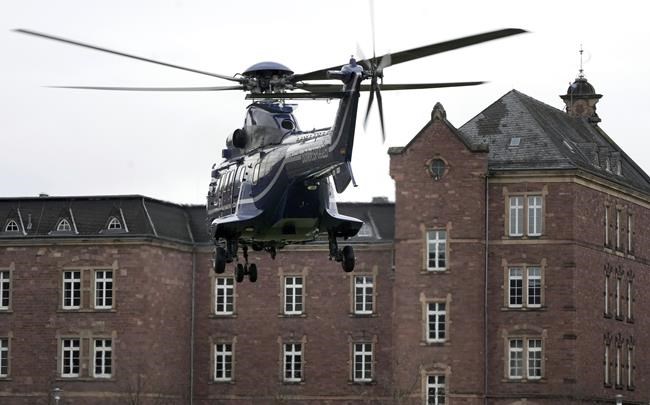To borrow from the English language, coups, a French derived coup d’Etat ill-wind conceptual coinage, blow nobody any good. They send chill down the spines of targeted leaders and state mechanisms as they do to the citizens, with spillovers to neighbor countries. They lead to loss of innocent lives and all sorts of other negative effects like creation of internally displaced persons and refugees; hitting hard on the women and children. They just constitute a sad, bad and terrible experience any country can go through.
Coups, therefore, present a case that befits the conventional health delivery approach of prevention is better than cure, making it extremely unfortunate for countries that have gone through one after another, the like of the Republic of Turkey’s almost one coup every decade since the early 1960s — the latest being the very highly controversial and failed putsch of July 15, 2016.
In the final analysis, with or without a coup, what really matters or makes the difference, is the way those in power handle surrounding pre-, concurrent and post-coup circumstances. A vivid example is in the latest close-to-fiction narrative, call it an expose if you like, from Germany in contrast with the Turkey’s July coup affair, just about six-and-a-half years down the time lane.
If anything, a scrutiny of both experiences reads like a story of from Berlin with coup response transparency equation for Ankara. Otherwise, what would you make from reading with a critical eye between the lines of the following versions of the Berlin and Ankara coup versions?
The Berlin Coup
At the end of the first week of December, 2022, world media hit the audience with coup news in Germany. Euronews: German police detained 25 people for being part of Germany’s Reichbuerger, or Reich Citizens, movement. BBC: Twenty-five people have been arrested in raids across Germany on suspicion of plotting to overthrow the government. A man named as Heinrich XIII, from an old aristocratic family, is alleged to have been central to their plans.
CNN: German officials arrested 22 suspected members and three supporters of a far-right terrorist organization across the country… on suspicion of plotting to overthrow the government. Alleged members of the plot include a descendant of German royalty and a former far-right member of Bundestag (Germany’s lower house of parliament) …
This sent the Bundestag three special committees into holding closed-door sessions to debate investigations into the coup plot. The three are legal, interior affairs and parliamentary control committee which is responsible for Germany’s domestic and foreign intelligence services.
What do the prosecutors say? Suspects planned to set up 280 armed units across Germany that would have been tasked with “arresting and executing people” after a coup. They also talked of seizing a large number of “non-disclosure agreements” by people the alleged plotters tried to recruit.
More than 130 properties were searched. The group is alleged to have made contacts with Russian officials seeking to establish a new order in Germany once the Berlin government was overthrown. It is also said to have begun stockpiling weapons. The timeline is by Christmas. If true, this means the planned operation was nipped in the bud. Prevented, that is.
Heinrich XIII (Prince Reus) aged 71 is said to have planned to be installed as the new leader. He is alleged to have initiated contact with a Russian woman who was also arrested in the raids to secure Russian support. Kremlin spokesman Dmitry Peskov quickly denied any Russian involvement whatsoever, calling it an entirely domestic German affair.
Italian police detained an alleged member of the Reich Citizens movement, a 64-year-old former member of the German army’s special corps, subject to being extradited. A similar case, to a certain extent, happened in Austria.
Green Party lawmaker Konstantin von Notz called this “shocking … based on the scale of their intentions against our liberal democracy.” Members of the movement believe deep state conspiracy theories that deny the existence of Germany’s post-World War II Federal Republic and reject the authority of the German government. They believe the 1937 borders of the German empire still exist.
The Ankara July Coup
No doubt the July 15, 2016 was a deadly coup attempt that shook Turkey to the rock bottom, presenting a turning point in Turkish political history.
What happened? Co-ordinated military operation. Soldiers and tanks taking to the streets with a number of explosions in Ankara and Istanbul. Turkish fighter jets drop bombs on own parliament. Chairman of the joint chiefs of staff is kidnapped by his own security.
News spread on social media. Thousands of people armed with nothing more than kitchen utensils gather in streets and squares around Anatolia to oppose the coup. In a matter of hours, crowds resisted tank fire and air bombardments and with the help of loyalist soldiers and police officers defeat the coup.
The government quickly declared victory; score of troops that had taken part surrendered on the Bosphorus Bridge in Istanbul. The price was high 241 people killed and 2,194 others wounded.
The government blamed Muslim cleric Fethullah Gulen living in self-exile in the US since 1999, putting a price on his head. Gulen condemned the coup, challenged President Recep Tayyip Erdogan to allow for an international investigation and pledged to abide by its ruling.
Erdogan displayed apparent unwillingness to fully investigate the incident. The parliamentary commission was delayed because the ruling JKP) delayed appointing members to the commission. Even then, the commission did not call key witnesses. A year after, questions about what really happened remained unanswered.
Global reactions
Former director of US national intelligence James Clapper said Gulen’s involvement in the coup didn’t pass the ‘smell test’ of credibility. US House Intelligence Committee chairman Devin Nunes said it was “hard to believe” Gulen was behind the attempt. Head of the Germany’s BDN Foreign Intelligence Agency Bruno Kahl responded: “Turkey has tried to convince us of that at every level but so far it has not succeeded.”
European Union Intelligence Centre INTCEN’s report contradicted the Turkish government claim. The Service found it unlikely that Gulen himself played a role. It also determined that Erdogan’s purges were planned well before the incident.British signals intelligence agency GCHQ intercepted communication between top Erdogan brass about half an hour after shooting started that the coup would be blamed on Gulen and purges would start the next day.
The Ankara contrast
One political commentator summarized the Ankara coup as “a genuine plan that was compromised and weakened and allowed by President Erdogan to play out in order to crush it and achieve his strategic goals.” Why?
First, “what happened did not exhibit the pattern of a coup planned by the military, but rather one planned by the intelligence service where military officers unwittingly played a crucial role in …the unconventional exercise.
Second, the “coup attempt was premeditated to provoke public outrage and pave the way for Erdogan’s autocracy. Civilian deaths are said to have been caused by snipers, drawing in SADAT, a defense consulting company working for Erdogan.”
Third, “the bombing of parliament left a lot of questions. Damage images show a much less than what an F16 fighter bomb would cause. They are more like a C4…” This suggests an explosion from inside; not from above.
The Turkish coup version raises the question of how one can be a better leader, but also what it means to be a good man in general. Erdogan will be remembered as a great Turkish ruler. But will he also be remembered as a good man? That is the question.
This rings to memory the third century BC Stoicism school of thought founded by Zeno of Citium, which is all about helping people live fulfilling lives by maximizing positive emotions, minimizing negative ones and cultivating a virtuous character.
According to available official figures the Turkey government, between 2015 — a year before the coup—and 2021 (five years after) has subjected, a total of 2,217,570 people to “terror crime” investigations. Currently, there are 1517 inmates in prisons, with health problems, 651 of whom are seriously ill. How does this tally with the German’s figure of 25 – composed of 22 suspected members and three supporters of a far-right terrorist organization across the country?
Other things remaining equal, who can fail to draw a line between Prince Reus, who is alleged to have planned to be installed as a new German ruler against Fethullah Gulen living thousands of kilometers away and who abhors any ambition of occupying a government post?
All said, can Erdogan be described as a president with an invincible spirit? A head of state who can equally be abstinent from or enjoy what many are too weak to abstain from and too self-indulgent in enjoying? This is what belongs to a man of invincible spirit.
Hasn’t Turkey under Erdogan developed into a country where decisions are not informed but rather based on emotions and where leaders spend reigns dodging state affairs, loafing about their estates, and emptying the imperial treasures – without a word of protest? What remains of a country worth being placed in the rule of law category when revenge remains the measure of justice delivery?
ByÉ Felix Kaiza
Source: Poli Turco



